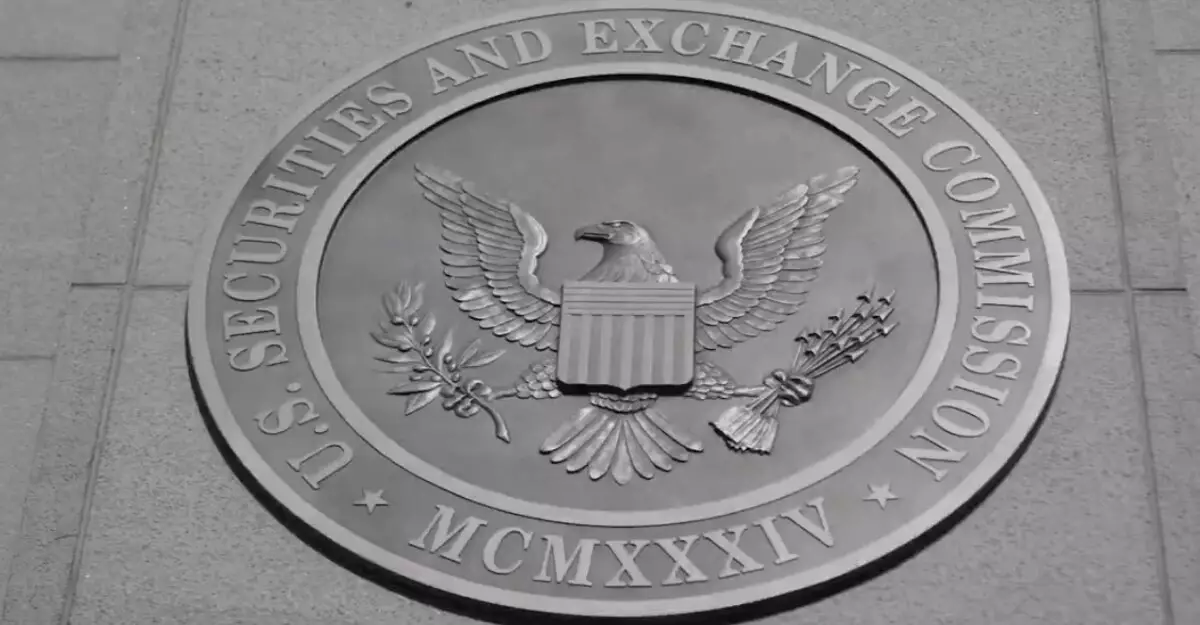The evolving landscape of cryptocurrency has elicited an urgent response from the U.S. Securities and Exchange Commission (SEC). Under President Donald Trump’s directives, the SEC is under pressure to establish regulations that not only streamline crypto trading but also safeguard national financial security. In this context, the SEC’s Crypto Task Force is stepping up its efforts with its second roundtable meeting scheduled for April 11. Although such an initiative is commendable, it raises critical questions about the pace and effectiveness of the regulatory framework being constructed.
The focus of this roundtable, substantially titled “Between a Block and a Hard Place: Tailoring Regulation for Crypto Trading,” suggests a recognition of the dual challenges regulators face: protecting consumers while accommodating innovation. This delicate balance is not just a regulatory concern; it’s a philosophical conundrum about how far the government should step into the evolving financial ecosystem. Will the SEC succeed in crafting a sensible regulation, or will it merely scratch the surface and leave the deeper, systemic issues unaddressed?
Panelists and Perspectives
The individuals serving on the panel are notable figures from various sectors, including high-profile representatives from Coinbase, Uniswap Labs, and the New York Stock Exchange. With such a mix of traditional finance veterans and crypto innovators, one would hope for a diverse range of opinions. However, the blending of these perspectives might face potential pitfalls. Credit must be given to the SEC for opening the conversation, yet can we trust that a panel embedded within these established institutions will provide the disruptive vision needed for a revolutionizing technology?
Gregory Tusar and Katherine Minarik are both powerful voices in their realms, yet one must consider: will their affiliations cloud their perspectives? It is crucial for the SEC to ensure that all panelists, especially those from financial institutions with vested interests, represent the broader crypto community’s needs. The voices of smaller innovators and everyday crypto users must not be overshadowed by the titans of the industry represented at these roundtables.
The Public’s Voice Matters
A positive aspect of this roundtable initiative is the SEC’s commitment to involving the public in regulatory discussions. The opportunity for attendees and viewers to submit suggestions is a step toward fostering inclusivity in a space that frequently sidelines average crypto users. The statement from Commissioner Hester M. Peirce emphasizes that public feedback will be considered, which is a refreshing departure from the traditional ‘top-down’ approach often seen in regulatory ecosystems.
Yet, we must remain skeptical. Can a handful of public submissions truly inform a regulatory framework complex enough to address the myriad issues within the cryptocurrency sphere? The demanding timeline – with the SEC reportedly aiming to finalize these regulations by August – creates a troubling implication: hasty decision-making often leads to oversights and inadequate solutions.
Regulatory Ambiguity: The Trap of Quick Fixes
The question remains: how effective will these regulations truly be? The initial roundtable held in March, where officials concluded that stablecoins are not securities, raises red flags about the understanding of financial classification complexities. Are we willing to delve deeper into this enigmatic realm, or will we settle for superficial classifications that could create legal loopholes? The need for clarification is paramount, but hastily drawn lines can stifle innovation and create uncertainty among businesses and investors alike.
Additionally, these regulations may inadvertently position the U.S. at a disadvantage in the global competition for crypto innovation. If the SEC’s roadmap represents a plethora of restrictions rather than a framework for growth, it could push talent and investments overseas, where regulations might be more conducive to cryptocurrency development. Is America ready to sacrifice its position as a leader in technological advancement for the sake of control?
The recent executive order to establish a strategic reserve of cryptocurrencies represents a pro-crypto approach, yet how does it coexist with tight regulations potentially being set up simultaneously? Balancing national security concerns with the desire for an innovative marketplace is a dangerous tightrope that, if mismanaged, could lead to significant backlash from all corners of the crypto community.
As the digital currency ecosystem continues to grow and evolve, so must our approaches to regulation. The SEC’s forthcoming discussions and decisions are not merely procedural; they stand as a defining moment in how the American financial system will engage with emerging technologies for years to come. The stakes have never been higher as we stand at the crossroads of tradition and innovation.

